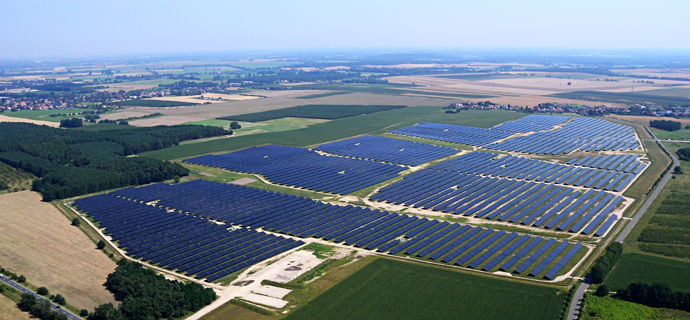The Japanese oil company Showa Shell Sekiyu K.K. has reported that its subsidiary specializing in the CIS thin-film solar module production, Solar Frontier K.K., registered a stable demand for its residential and non-residential business during the first half of fiscal year 2017, which ended on Jun. 30, 2017.
The company stressed that, although global demand for solar modules has increased, it is now focusing on the Japanese market, as its overseas business is facing a slump in panel prices and severe competitive environment.
Showa Shell said that the manufacturing Solar Frontier’s SmaCIS panels — which come in a range of shapes and sizes for the Japanese rooftop market — began as planned at the 900 MW Miyazaki Plant in July. “There has been steady progress on spec-in by residential housing manufacturers, and order volume is growing,” the company said in its financial results.
The group also said that profits of its solar unit will still be impacted by lower panel prices, which are falling in Japan too, and that the situation of the PV division will continue to be tough during the transitional period until the new business strategy gets fully underway
Popular content
The company’s Energy Solutions Business, which includes the activities of Solar Frontier, reported net sales of JPY 47.8 billion ($437.9 million), down 24.2% from JPY 63.0 billion in the first six months of the previous fiscal year, and an operating loss of JPY 4.2 billion ($38.4 million), down from JPY 3.4 billion in the first half of fiscal 2016.
The Japanese company’s parent Showa Shell reported a net profit of JPY 16,046 million for the January-June period, on consolidated net sales of JPY 947.4 billion, ($8.68 billion) up 11.3 % year on year.
This content is protected by copyright and may not be reused. If you want to cooperate with us and would like to reuse some of our content, please contact: editors@pv-magazine.com.



2 comments
By submitting this form you agree to pv magazine using your data for the purposes of publishing your comment.
Your personal data will only be disclosed or otherwise transmitted to third parties for the purposes of spam filtering or if this is necessary for technical maintenance of the website. Any other transfer to third parties will not take place unless this is justified on the basis of applicable data protection regulations or if pv magazine is legally obliged to do so.
You may revoke this consent at any time with effect for the future, in which case your personal data will be deleted immediately. Otherwise, your data will be deleted if pv magazine has processed your request or the purpose of data storage is fulfilled.
Further information on data privacy can be found in our Data Protection Policy.